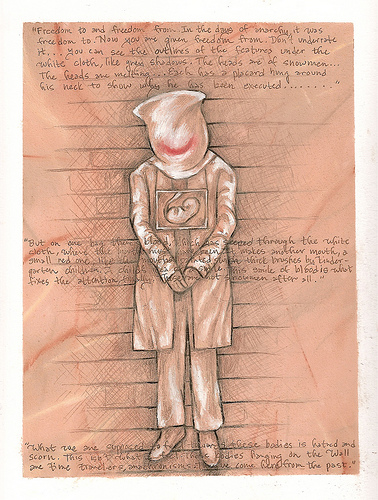Strippers…interact with technology?
Let me start by saying that I’m so glad Ryan and Alex spoke to us on Monday. It was an eye opening experience for me as I had never been in such a forum to ask such questions. I do regret not taking advantage of being able to ask open-ended questions but I was a little uncomfortable with the thoughts I had running through my head during the discussion. How personal is too personal? Alot of the questions I wanted to ask seemed inappropriate in a classroom setting but I suppose that was the general idea: to have our thoughts outload for everyone to learn. I do thank them for speaking as I know talking about their personal struggles with gender and identity must not have been easy.
It seems I can’t help but talk about this class outside of the classroom. I’m learning such debate-worthy topics that I tend to bring up the subjects in conversations with friends. I had dinner with my best friend in Philly this weekend and I brought up how this class has made me think of make-up as a technology and how it was so ingrained in the daily routine of my family that it was enlightening to think of the material as “technology.” Tiffany then went on to say how she had written a paper (while she was at Bryn Mawr also) about the gendering and de-gendering of strippers. She asked me, “What did your father tell you while you were growing up? That you were smart or that you were pretty?” I replied,” I suppose I heard smart more than pretty.” She then asked me a rather different question; “What do you suppose stripper’s fathers told them when they were little?” She then tilted her head in a knowing way to me and I immediately knew that stripper’s fathers must have told them they were pretty. This got me thinking: I think it maybe isn’t all society that has molded us into what we are as men, women, or even both. Perhaps it started more internal, with people that love us the most. Yes, they in effect told us our strengths in order to avoid mentioning our weaknesses but they also made us into who we are. In my case, a math student at Bryn Mawr College but in other cases, a stripper in Reno.
I know this may sound harsh and I am not degrading those women who choose to live by their bodies (I would never be able to have a career like that physically and I give them all the credit in the world for having that courage). But I had previously thought technology to be for the more intelligent individual and I do have the stigma in my mind that strippers are not as educated as most. But linking makeup as technology I suppose would make strippers the ultimate wielders of technical power in that the use this technology to engender themselves to be anything male, female, or even both. It’s such a cool concept.
*I do apologize if I have offended anyone. I’m learning gradually in this class to change what I know into more dynamics of what I know.
Comments are closed.

You might be interested in a film called Live Nude Girls Unite! It’s a documentary about strippers unionizing. What seemed particularly relevant to your account is an encounter between one of the sex workers and her mother, a feminist who has spent her life trying to save street-workers. Daughter and mother take up opposite sides in the sex war debates: the mom is sure that the women she is helping are victims, while the daughter is as clear that, as a professional dominatrix, she is working for social justice.
Another paper topic, for sure: the technology of sex work.
I think you bring up a very interesting idea. Now that I think about it, strippers do have an impact on gender and technology. Take main stream music for example. T-Pain’s 2005 song “I’m ‘n Luv (Wit a Stripper)” glorifies the profession as a monument to sex.
Now, I’m a member of BMC’s burlesque troupe and I don’t intend to sell sex in my performances. Rather, the goal of our troupe is to promote positive notions about real bodies through body positive performances. I think that our dances will help other women feel better and even empowered by their natural figures.